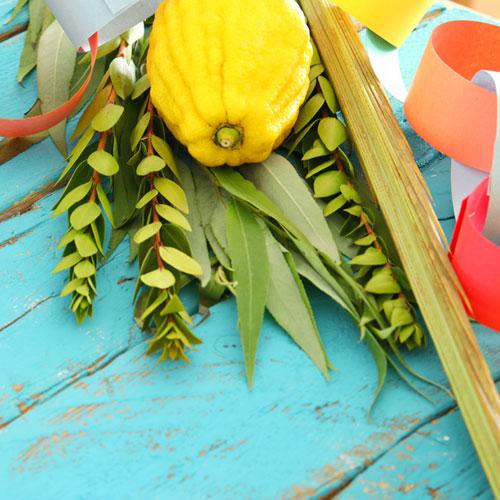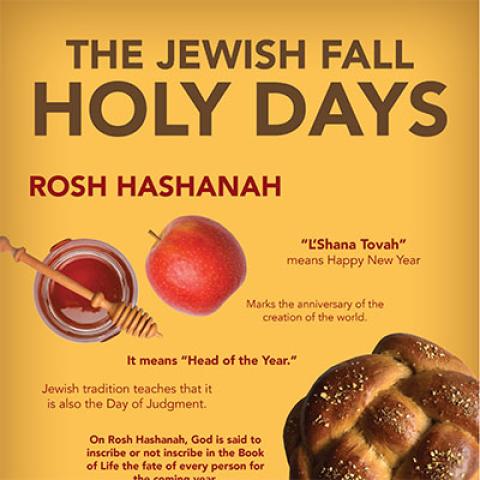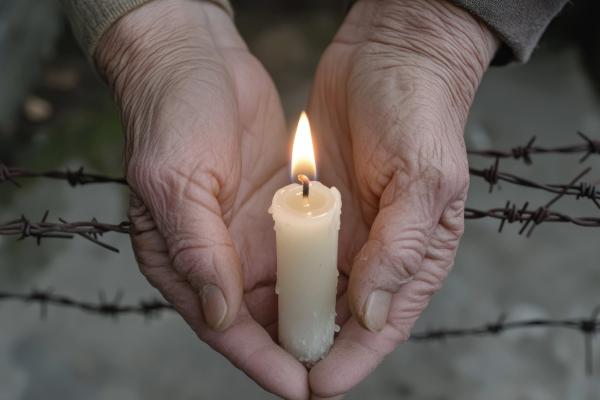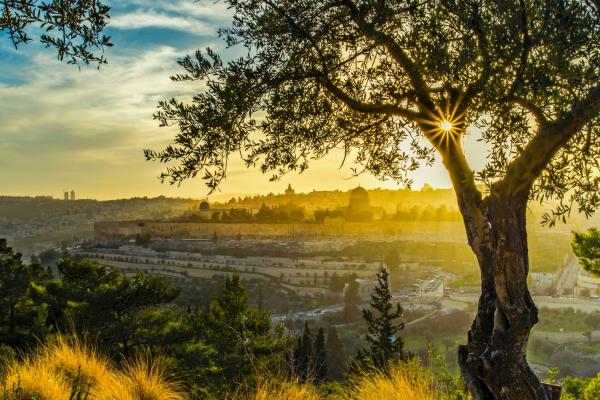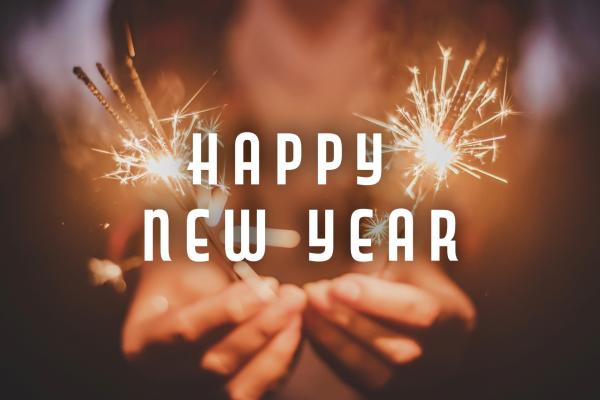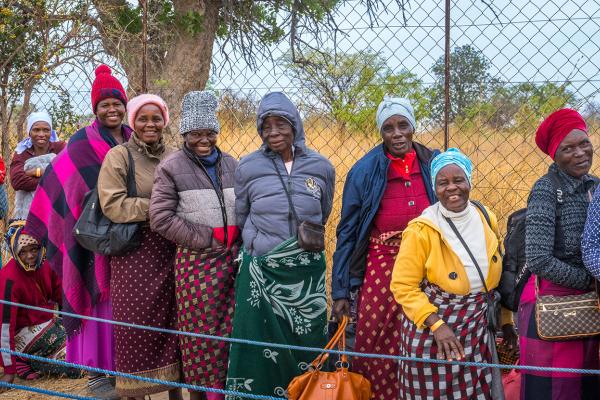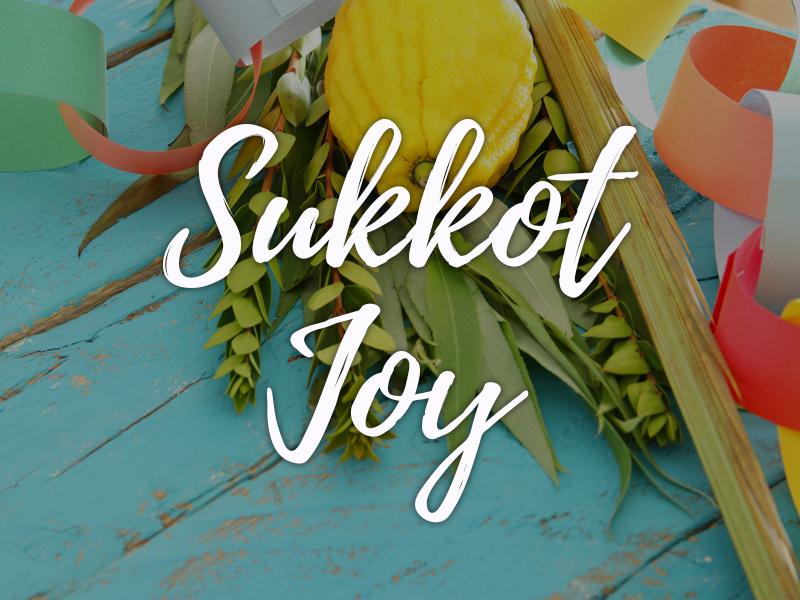
Sukkot Joy, Day 1
Rejoicing over God’s Past Provision Sukkot (Soo-KOTE) is the only moad (MO-ed), or “appointed time,” during which God commands His people to rejoice. It may seem like an unusual instruction. Can you command joy? Isn’t it, instead, a spontaneous, involuntary response?
By reading God’s instructions about Sukkot, we can understand that joy can be a choice as well as a response. Intentional rejoicing begins with choosing to contemplate things worth celebrating.
Sukkot reflects back to God’s provision for the Jewish people in the wilderness after He led them out of Egypt. Not only did He free them from slavery, He also gave them clean water from a rock and sustained them with a mysterious food they called manna. For 40 years, the people wandered in the desert. In all that time, neither their clothing nor their sandals wore out.
At Sukkot, we rejoice over this care God gave to the Israelites in the wilderness. Repeatedly in the Scriptures, God instructs Israel to remember what He has done for them. Doing so fostered courage, hope, and joy in the hearts of His people.
“God’s deeds and works make the heart glad and soul sing for joy.”
―Psalm 92:5
The Feast of Booths, Sukkot, offers us the occasion to reflect on how God has provided for us in our own lives as well. Think about the “deeds and works” God has done in your life through the years. Remember ways He sustained you through various hardships. Call to mind the prayers He answered that changed your circumstances – or changed you.
On this first day of Sukkot, may God fill your heart with joy for all that He has done for Israel and for you in.
Sukkot Joy, Day 2
Rejoicing over God’s Current Provision Some blessings in our lives are so constant that it’s easy to forget they are gifts. God gave a unique instruction for observing the Feast of Sukkot (Soo-KOTE) that can help us remember. We are to build and live in a sukkah (SOUH-kah), or “booth,” for the week-long festival. In Leviticus 23:43, He explained His purpose: so that the people of Israel ‒ and all subsequent generations ‒ would remember that God made Israel live in tents when He brought them out of the land of Egypt.
Historically, Sukkot was also an agricultural festival requiring Jewish people to make a firstfruits offering from the fall harvest. While they remember how God met the needs of their ancestors, Israel also rejoiced in His provision for their lives in the present day.
As we consider the children of Israel and all that God did for them in the wilderness, we can’t help but compare our lives to theirs. Today, most of us enjoy a wide variety of daily food choices, and we are never far from safe drinking water. We own multiple sets of clothing and live in homes with several comfortable rooms that offer us more-than-adequate shelter from the elements. Sukkot urges us to not only be grateful for these gifts, but to rejoice over them. Even these ordinary provisions remind us that every gift from God is a great thing.
“The Lord has done great things for us, and we are glad.”
―Psalm 126:3
God goes far beyond making sure our physical needs are met. He is intimately involved in each of our lives to nurture and mature us, and to equip us for His work. He has a purpose for each one of us, and He strengthens us to fulfill His calling in our lives. This Sukkot, as you celebrate God’s material provision for you, choose joy by also reflecting on His spiritual provision and how He is working in your life today. Rejoice!
Sukkot Joy, Day 3
Rejoicing over God’s faithfulness
God promised Abraham that He would make his descendants like the stars – so vast in number they’d be virtually countless. How outlandish those words must have seemed to a 75-year-old man and his 65-year-old, barren wife. Yet, today, we know that God kept that promise. There are now more than 14 million Jewish people in the world. When added to the generations across the millennia since the birth of Isaac, son of the promise, the numbers are beyond calculation.
The starry sky, seen through the leafy roof of a sukkah (SOUH-kah), testifies to God’s faithfulness. He is our rock, steady and true. He never changes, and His love remains. The everlasting God keeps His covenants and fulfills all His promises.
“Know therefore that Adonai your God, He is God ‒ the faithful God who keeps covenant kindness for a thousand generations with those who love Him and keep His mitzvot.”
―Deuteronomy 7:9
“For Your love is higher than the heavens, Your faithfulness reaches to the clouds.”
―Psalm 108:5
Celebrating God’s faithfulness is a vital part of our Sukkot joy. We know that He has been faithful to Israel (Psalm 94:14), and He will be faithful to us today as well (1 Thessalonians 5:24). God’s Word tells us that He will complete the work He began in us (Philippians 1:6) and that He will never leave us (Hebrews 13:5). Even “if we are faithless, He remains faithful, for He cannot deny Himself” (2 Timothy 2:13).
On this third day of Sukkot, rejoice in God’s faithfulness to Israel and to Believers in Messiah Yeshua (Jesus). Take a few moments to also reflect on ways He has proved Himself faithful to you. May your joy overflow as you recall His steadfast love and power in your life.
Get the Fall Feasts Infographic
Discover the meaning and wonder of Rosh Hashanah, Yom Kippur, and Sukkot with this specially designed infographic.
Sukkot Joy, Day 4
Increasing joy
Rejoicing is both spontaneous and deliberate. We’ve been exploring ways to choose joy through intentional reflection and thanksgiving. Is it also possible to cultivate natural joy? Can we participate with God in fostering our increasing joy?
The Bible indicates that joy is not only a fruit of the Spirit, but it is also a fruit of trusting God.
“Though you have not seen Him, you love Him. And even though you don’t see Him now, you trust Him and are filled with a joy that is glorious beyond words.”
―1 Peter 1:8
When we placed our faith in Yeshua (Jesus) as the Messiah, we trusted Him with our need for a Redeemer. As a result, we experienced the joy of being reconciled to God.
Joy is also generated when we trust God day by day. As we lay our needs and concerns in His hands, trusting His will for the outcomes, our hearts rest in His love, wisdom and power toward us. Joy and peace follow.
“Adonai is my strength and my shield. My heart trusts in Him, and I was helped. Therefore my heart leaps for joy, and I will praise Him with my song.”
―Psalm 28:7
“Now may the God of hope fill you with all joy and shalom in trusting, so you may overflow with hope in the power of the Ruach ha-Kodesh.”
―Romans 15:13
Sometimes, trusting God is easier to understand than it is to accomplish. But etting go and truly trusting Him can be difficult in certain areas of our lives. As part of your Sukkot (Soo-KOTE) celebration, think about how God might be calling you to deepen your trust in Him. When you accomplish that, His joy will be waiting for you.
Sukkot Joy, Day 5
Rejoicing over God’s atonement
Just five days after the most solemn day of the Jewish year, Yom Kippur (YOHM Kip-POUR) – the Day of Atonement – God commands a week of rejoicing at Sukkot (Soo-KOTE). God covered the sins of Israel once a year on Yom Kippur. He required remembrance and rejoicing to follow soon afterward.
During Sukkot, we celebrate God’s provision for us, His faithfulness to keep His promises and His presence with us. These gifts are most vividly revealed in the complete atonement available to us in Messiah Yeshua (Jesus). As we receive the salvation Yeshua offers, God welcomes us, forgives us, cleanses us from sin and gives us eternal life, filling us with joy.
“But the angel said to them, “Do not be afraid! For behold, I proclaim Good News to you, which will be great joy to all the people.”
―Luke 2:10
Through the course of everyday life as we encounter various discouragements and challenges, we can lose sight of this joy. King David did when he came face-to-face with the ugliness of his sin (2 Samuel 11‒12). In Psalm 51, he pleaded with God: “Restore to me the joy of Your salvation and sustain me with a willing spirit.”
We can rekindle this joy by reflecting on the magnitude of Yeshua’s sacrifice and what it gained for us. On this fifth day of Sukkot, may your heart overflow with thankfulness for your salvation. You have been reconciled to God and have been given eternal, abundant life in Yeshua. That’s cause for rejoicing!
Sukkot Joy, Day 6
Rejoicing over God’s presence
In the wilderness, God’s presence dwelled with the Israelites, first in the pillars of cloud and smoke and later in the tabernacle. The Feast of Booths invites us to celebrate God’s ancient presence with His people in the wilderness as well as his presence with us today.
God’s presence with us has and continues to be among His greatest gifts. Through the Holy Spirit, God makes His home in the hearts of Believers. We have available to us perpetual access to the God of all creation along with His wisdom, guidance, comfort, and power. God’s presence also offers us joy.
“… Abundance of joys are in Your presence, eternal pleasures at Your right hand.”
―Psalm 16:11
God is incomparable. His purity and goodness are matchless. His greatness is unsearchable and His power immeasurable. His love is endless. He has reconciled us to Himself through Yeshua (Jesus) so that we may come into His presence and know that He Himself is the source of overflowing joy.
“I will come to the altar of God, to the God of my exceeding joy, and praise You upon the harp ‒ O God, my God.”
―Psalm 43:4
As you take time to intentionally rejoice during the Feast of Sukkot (Soo-KOTE), may you discover true joy in fellowship with God, delighting in His presence and celebrating His immense love.
Sukkot Joy, Day 7
Rejoicing over our eternal home
God requires the Jewish people to live in “booths” during the Feast of Sukkot (Soo-KOTE) so they will remember the living conditions of their ancestors in the wilderness (Leviticus 23:43). The children of Israel hadn’t yet entered the Promised Land, which was to be their permanent home, so until then, God had them live in tent-like, temporary housing.
Believers in Yeshua (Jesus) know that this earthly world is not our true home. The bodies we live in are temporary, a shadow of what is to come. The apostle Paul called them tents.
“For we know that if the tent, our earthly home, is torn down, we have a building from God – a home not made with human hands, eternal in the heavens.”
―2 Corinthians 5:1
Each of God’s moadim (mo-eh-DEEM), the “appointed times” of His feasts, contains a prophetic picture of something the Messiah would fulfill later. The time is coming when the Jewish people will recognize Yeshua as the promised Messiah, and “all Israel will be saved” (Romans 11:25‒26). When that takes place ‒ when Yeshua returns to gather His elect ‒ we will receive new, heavenly bodies and dwell with God throughout eternity.
According to Paul, these new bodies will not be mere tents, but “buildings” – our permanent housing. The temporary structures of our earthly lives will be replaced with strong eternal homes in God’s presence forever.
That calls for rejoicing! This is Sukkot joy.
Sukkot celebrates the gift of God’s presence now and for eternity when our joy will be made full. May you carry your Sukkot joy into every day from now until then.
Get the 5 Minute Feast DVD
Discover how easy it is for you to celebrate the Fall Feasts that God prescribed in the Bible.



